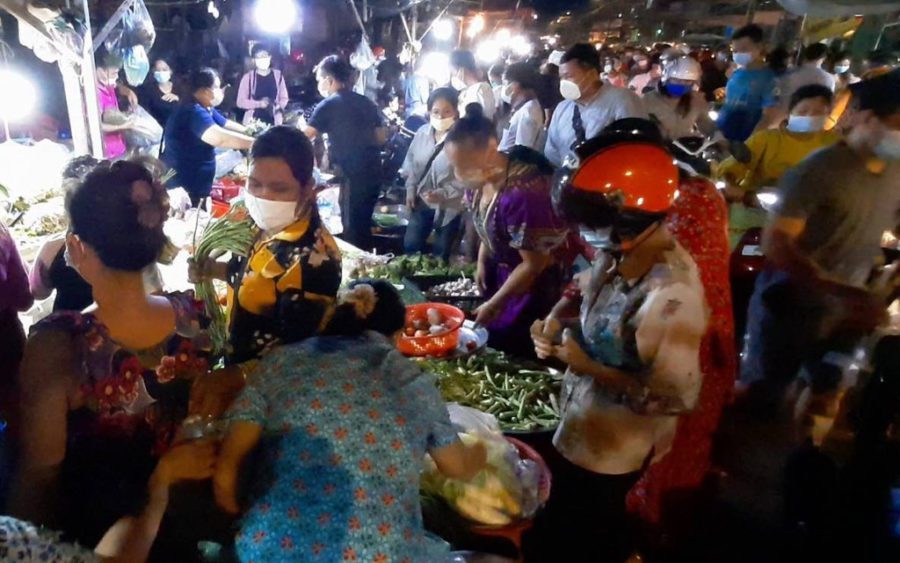Hundreds of questions flooded a messaging group set up by Phnom Penh City Hall about Covid-19 measures after the city was put under lockdown just before midnight Wednesday, with some answers provided about traveling for vaccines, cycling around neighborhoods, and necessary documentation.
The Telegram group, “Administrative Rules Explanation,” created on April 10 after select villages and communes were locked down in the capital, now has more than 24,000 members. After the lockdown was extended to the entire city, people flocked to the group to ask questions.
Boy Ponle said he lived in Kandal province but needed to travel to Phnom Penh’s Russei Keo district on April 19 for his second vaccine dose, and asked if it would be possible. City Hall answered that local officials at various checkpoints would allow him to make the journey even without a travel permit, as long as he carried his vaccination card and identification.
In response to questions, City Hall also said:
- Food delivery drivers must have a permit issued by commune authorities to be allowed to pass through roadblocks.
- Workers who are allowed to commute must carry a letter from their workplace in addition to identification.
- All factories are to close except for food processing plants.
- The Akrei Khsat ferry is only being restricted, not suspended entirely.
- Walking or cycling within one’s own restricted village area is allowed.
However, many questions — as well as general complaints — were not answered. People variously asked about beer factories, whether they could go out to buy tools, and whether suspended businesses would need to pay taxes.
Norng Phirum asked why the government gave such short notice for the lockdown, saying “now everything is total chaos.” Bonich Minh said he had seen many questions go unanswered “or not explained thoroughly, or messed up” and asked for a telephone hotline to be made available for more specific queries.
The lockdown applies to Kandal’s Takhmao city as well as Phnom Penh.
In an audio message issued late Wednesday, Prime Minister Hun Sen apologized for the lockdown’s unruly rollout, saying action would be taken against whoever leaked a voice recording of Hun Sen’s decision before the official announcement.
“There was a little chaos before the government issued its decision about the lockdown,” he said. “I would like to make an apology because a decision had not been issued but it was leaked in advance. … This action will be subjected to discipline in the upcoming time when we find out.”
Hun Sen added that the government was being understanding by allowing people to leave their homes in certain circumstances despite the lockdown.
“We have not killed completely our people’s economic and social activities,” he said. “The difference from other countries and lockdowns that do not allow people to leave their house … [is] we’ve locked down people from leaving their houses but we understand about people’s need to leave the house.”
He urged people to be understanding and not panic.
“I would like to clarify that brothers and sisters will not face starvation, and there will not be a shortage of rice, salt, food to support Phnom Penh city,” he said. “Please try to be patient in this period and we can endure the suffering in the short term rather than endure suffering long-term.”
The country has seen a surge of Covid-19 cases in recent weeks, including 344 new cases announced on Thursday, with 243 of them in Phnom Penh. The country now has 2,858 active cases.
“We are on the brink of death. If we do not try together, we will truly reach death,” Hun Sen said.













